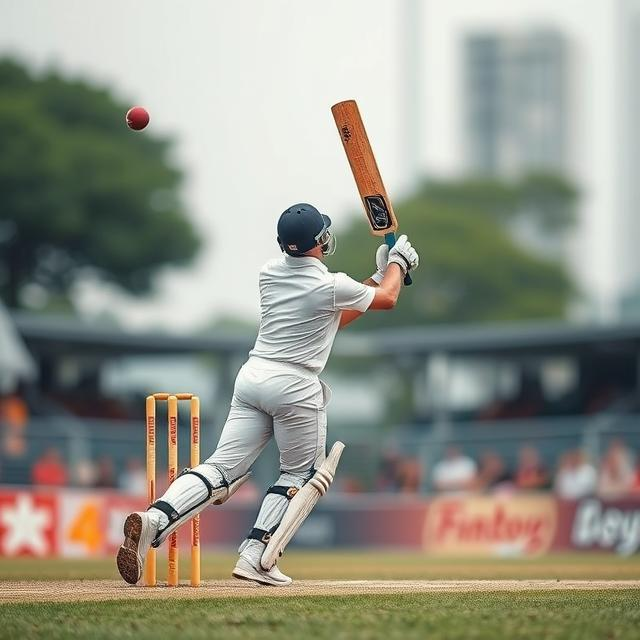Who is the Best Captain of Pakistan Cricket Team? A Deep Dive

Who is the Best Captain of Pakistan Cricket Team? A Deep Dive
Pakistan cricket, a rollercoaster of triumphs and heartbreaks, has been led by a succession of iconic captains. Choosing the absolute “best” is a subjective exercise, dependent on the criteria used. From Imran Khan’s inspirational leadership to Babar Azam’s steady hand, each captain has left their mark on the team’s history. Let’s delve into the careers of some of the most influential captains and explore what makes their leadership styles unique.
Unveiling the Icons: A Journey Through Pakistan’s Captaincy
Imran Khan: The Visionary
Imran Khan’s captaincy, during the 1980s, is synonymous with the golden era of Pakistan cricket. He wasn’t just a brilliant cricketer; he was a leader who inspired a generation. His charismatic personality and motivational speeches were often the key to galvanizing the team. Crucially, he fostered a team culture that valued discipline and teamwork. His bold tactics and aggressive approach, sometimes bordering on the audacious, often led to thrilling victories but also to some high-profile losses. Ultimately, his legacy as a captain remains profoundly significant.
However, Khan’s captaincy also faced criticism, with some accusing him of micromanagement and of prioritizing personal agendas over collective well-being. A thorough analysis of his captaincy must encompass both the extraordinary victories and the occasional shortcomings, painting a nuanced picture of his legacy.
Javed Miandad: The Resilient Leader
Javed Miandad, a towering figure in Pakistani cricket, carried the responsibility of captaincy with remarkable fortitude. His unwavering determination and ability to pull through challenging situations made him a vital figure in Pakistan’s cricketing history. His leadership style was characterized by a pragmatic approach, often focusing on strategic planning and tactical prowess. Miandad’s focus on team unity and ability to connect with teammates were critical aspects of his captaincy.
He inspired confidence among the players, and was a master motivator in the middle of a difficult match, a pivotal quality in high-pressure situations. His leadership style was both inspiring and practical, balancing emotional strength with strategic precision.
Misbah-ul-Haq: The Steady Hand
Misbah-ul-Haq’s captaincy was marked by a calculated, methodical approach, focusing on meticulous planning and calculated risk-taking. His understanding of the game allowed him to make astute decisions in high-pressure matches. He instilled a culture of discipline and efficiency within the team, enabling sustained performances. A key element of his captaincy was his ability to inspire players to perform within their individual capacities and in tandem as a collective.
Inzamam-ul-Haq: The Experience-Driven Commander
Inzamam-ul-Haq, a veteran of the game, became a leader by example. His extensive experience at the highest level was a significant asset to the team. His strategic acumen and understanding of Pakistan’s strengths were instrumental. Inzamam instilled in the team the importance of consistency and hard work, creating a work ethic that propelled the team towards notable accomplishments. A comprehensive look at his leadership would involve assessing the impact of experience and his ability to guide younger players.
Babar Azam: The Modern Master?
Babar Azam is the current captain, lauded for his calm demeanor, strategic acumen, and technical brilliance. His captaincy demonstrates a modern approach, combining aggressive batting prowess with a pragmatic leadership style. His ability to analyze the opposition’s strengths and weaknesses and adjust his strategy accordingly is one key to his success. He has steered the team towards considerable success, including leading them to some impressive victories. However, measuring his legacy will require a deeper look at his performance over a more extended period. Is this a “best captain” or merely a leader suited to this particular time?
Criteria for Evaluating a Great Captain
Key Considerations in Evaluating Captaincy
Defining the “best” captain necessitates a multi-faceted evaluation. Here are some key elements to consider:
- Victories and Tournament Performances: Significant tournament wins and consistently high-performance records are strong indicators of effective leadership.
- Team Building and Culture: A captain’s ability to foster a positive, cohesive team culture, to encourage and support teammates, and build a high-performance environment.
- Adaptability and Strategic Thinking: How effectively a captain can adjust strategies and tactics based on match conditions and opponent strengths.
- Decision-Making Under Pressure: Evaluation of judgment in critical situations and how effectively captains handle pressure and high stakes.
- Inspirational Leadership: A captain’s ability to motivate the team, even during challenging periods.
- Long-Term Impact: Assessing the captain’s contributions to the overall development of the team and the impact on the team’s historical trajectory.
Each captain has left a distinctive footprint on Pakistan cricket. The criteria used to measure “best” should encompass a wide range of factors, considering the historical context and the evolving landscape of the game.
Conclusion: A Continuing Narrative
Ultimately, the title of “best” captain is subjective. There is no definitive answer. Each captain embodies a unique leadership style, tailored to their era and the specific challenges they faced. Pakistan’s cricketing journey is a continuous narrative of resilience, triumph, and the remarkable impact of leadership on the field.
From the inspiring vision of Imran Khan to the calculated approach of Misbah, every captain has contributed to the rich tapestry of Pakistan cricket history. The debate continues, and rightfully so, for it reminds us of the complexity and nuances of leadership in sport. The debate is essential to appreciate the diversity of leadership styles that have shaped the success of the Pakistan team. We continue to look forward to the next generation of captains.